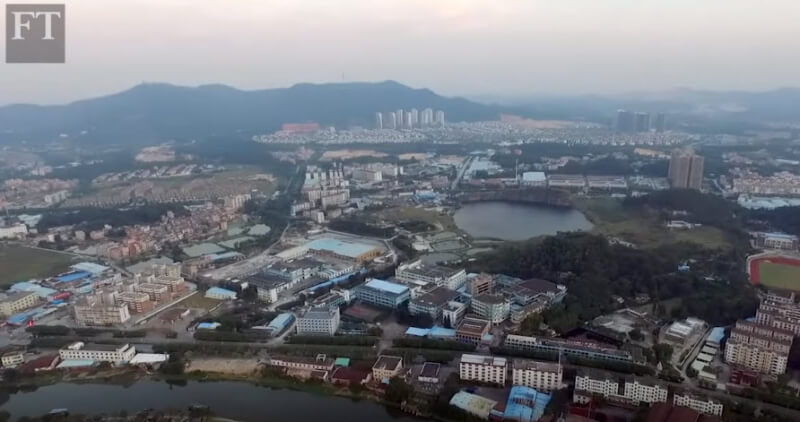
I follow news from all over Asia. Primarily, I pay attention to all the news happening in Japan, from the goofy stuff to the serious headlines. But the world is so interconnected these days, that Japan can easily be affected by news developments — political, economic, cultural — in other parts of the globe, and especially Asia. The crazy dude in North Korea, Kim Jong Un, for example, has been shooting missiles into the sea to flex his weak muscle and try to scare Japan and it allies, like the U.S. and South Korea, whenever the U.S. conducts military exercises in the region.
The most important news from Asia is often about China. China is the 800-pound economic gorilla of Asia. A more appropriate description might be a slinky Asian tiger or dragon, but the enormity of China’s outsized impact is like a gorilla: brute strength sometimes flailing about like King Kong beating his chest and romping through Manhattan — Wall Street, to be exact.
For years, China’s economy was growing so fast that it attracted laborers from rural regions (of which there are many) to the cities where good paying manufacturing jobs were available. For years China invested huge amounts in building cities and the infrastructure to reach those cities. For years, China’s growth and spending was a windfall for the rest of the world, which was happy to supply the raw materials and technology to help China become the second largest economy in the world, overtaking Japan.
The whole world got richer as China got rich, and the Chinese got rich too, relatively speaking. A middle class developed in the cities, and China became one of the biggest markets on Earth for cars. Hollywood studios regularly court China’s humongous audience, these days flush with disposable income and able to go see the latest theatrical releases. Luxury goods and Western brands are all the rage with the nouveau riche, and Chinese tourists, who now have the cash to travel all over the world, are visiting Japan in droves and returning with modern rice cookers and fancy heated toilet seats.
The downside to all this growth is captured in the nervous joke that’s been making the media rounds: “When China sneezes, the world catches cold.”
If and when China’s economy slows down, there’s a global ripple effect, an economic tsunami that can engulf weaker economies and weaken the strong ones. Some experts have been warning that the slowdown’s not just inevitable, but is already underway. You can see the warning signs in some of those new fancy cities that have been built in recent years. There are gleaming “ghost cities” that stand mute, with no traffic at all, because no one lives in them. And, as the sneeze affects the country and the chill causes corporate shivers, factories close down and workers are starting to head back home.
The Financial Times looks at the current state of China’s economic explosion and how it’s been tied to a huge wave of migration from the countryside to the cities that’s coming to an end, with a series of in-depth articles and this well-produced, thought-provoking 15-minute documentary feature:
Read and watch the reports, because if you’re interested in Japan, Korea or any other country in Asia, or our own American economy, we need to be aware of what’s happening in China and understand how it can affect the rest of the world.
Note: I’m going to be partnering with The Financial Times (a newspaper and online media company which, ironically, is these days owned by a Japanese newspaper, the Nikkei or Nihon Keizai Shimbun, Japan’s equal to Wall Street Journal) to present video features when they cover Asia or issues related to Asia. Let me know what you think.










